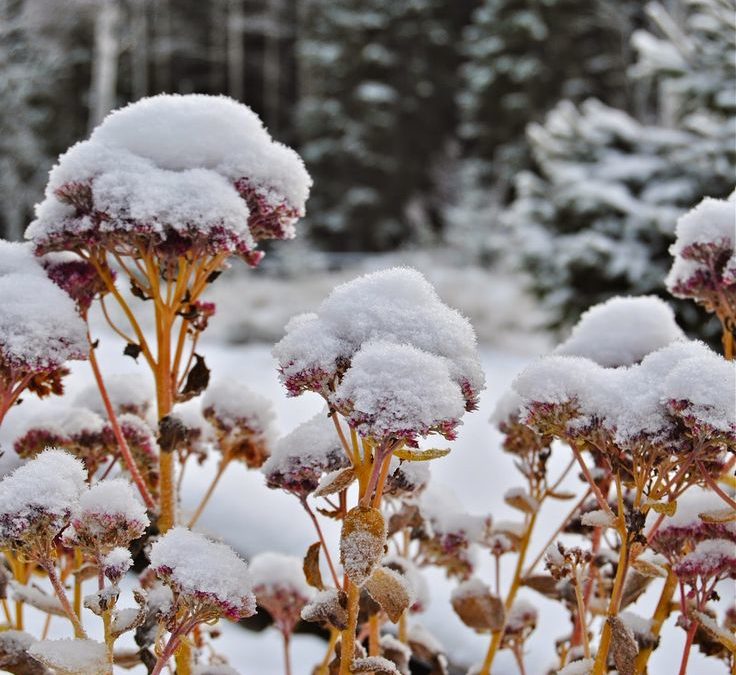Ice on your sidewalk, patio and driveway is an accident waiting to happen. As a homeowner or business owner, you have an obligation to your family, friends, pets and customers to keep your space clear and safe. BUT using rock salt to melt the ice can be harmful to your pets and plants, as well as your concrete, paver or natural stone patio, sidewalk or driveway, as it can leave pock marks and flaking on the surface and i corrosive to the mortared joints. Rock salt (sodium chloride) should never be used on anything other than asphalt. De-icers work by lowering the freezing point of water, and as the water freezes into ice, it expands in size. So, if the salty water has made its way into the cracks and pores of your driveways, walks and patios, the repeated freezing and thawing will cause damage to your natural stone, pavers and concrete. Therefore, it is best to use a de-icing agent that has a very low freezing point.
Have you ever wondered why some of the plants bordering your sidewalk, driveway or street take longer to green up every spring? Salt is toxic to plants even if it never comes into direct contact with the plant itself. As the salt dissolves into the soil, the sodium ions replace the needed phosphorous and potassium in the soil, robbing your plants of these important nutrients. Salt also absorbs the water that your plants depend on, causing them to become dehydrated and stressed. In addition, salt reduces the cold hardiness of your plants, making them less likely to survive our harsh winters.
Rock salt can also be harmful to your four-legged friends. In addition to causing irritation to their paws, rock salt can be harmful if ingested by pets.
So, what is the best solution? We recommend a line of products called “Safe Step” for all your slippery situations. It’s less corrosive, is gentle on vegetation, and is pet-safe! You should be able to find It at hardware stores in the area.
If you have an area that will unavoidably be hit by salt, such as along a roadside, constructing a barrier out of burlap or similar material will help. The following plants are good choices to plant along roadsides or in areas that receive a lot of salty runoff from a roadway:
Moderately tolerant
Artemisia ‘Silver Mound’
Big Leaf Hydrangea
Blue Fescue ‘Elijah Blue’
Butterfly Weed
Catmint
Coral Bells
Dwarf Korean Lilac
Forsythia
Foxglove
Hen and Chicks
Peony
Pinks
Poplar
Russian Sage
Sedum ‘Autumn Joy’
Sumac
Yarrow
Very Tolerant
Astilbe
Blanket Flower
Daylily
Dianthus
Reed Grass ‘Karl Foerster’
Creeping Sedum
Little Bluestem
Yucca
In the spring it is also a good idea to lightly brush off any salt that is remaining on the plants, and then flush the area with fresh water once the snow melts. As always, feel free to call or stop in to the garden center if you have questions or concerns!

